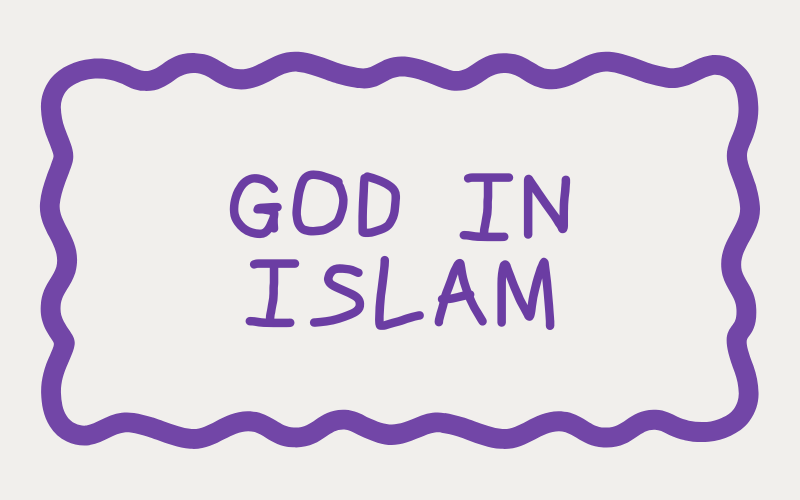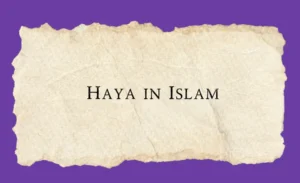In the vast realm of religious philosophy and spiritual inquiry, the concept of God stands as the central pillar of belief and devotion. In Islam, God is known as Allah, the singular, omnipotent, and all-merciful Creator of the universe. Islam’s understanding of God is not only foundational to the faith itself but also offers significant parallels and points of convergence with other Abrahamic religions, namely Judaism and Christianity. This comprehensive exploration delves into the Islamic concept of God, connects it with related beliefs in other major monotheistic traditions, and emphasizes the unity of divine purpose across religions.
The Concept of God in Islam
Islam is a strictly monotheistic religion. The core tenet of Islamic belief is encapsulated in the Shahada, the declaration of faith: “La ilaha illallah” (There is no deity but God). This statement reflects the uncompromising monotheism that defines Islamic theology. In Islam, the concept of God is rooted in absolute monotheism, known as Tawhid, which affirms that there is only one, indivisible, and incomparable God, “Allah – الله”.
Allah is not just a name but the personal and proper name of the one true God in Islamic theology. He is eternal, self-sufficient, and beyond human comprehension, yet deeply involved in the life of His creation. Muslims believe that Allah is the creator and sustainer of the universe, and He alone is worthy of worship.
The Qur’an, Islam’s holy scripture, frequently emphasizes God’s mercy, justice, and omnipotence, presenting Him as both transcendent and immanent. Unlike many other theological systems, Islam rejects any anthropomorphic representations of God and denies any intermediaries in the relationship between the believer and the Divine. This direct, personal connection with God is at the heart of Islamic faith and practice.
Names and Attributes of Allah
Allah is not merely a title; it represents the unique and singular nature of the divine. In the Qur’an, Allah is described through 99 Names (Asma’ al-Husna), each reflecting a distinct attribute, such as Ar-Rahman (The Most Merciful), Al-Aleem (The All-Knowing), and Al-Adl (The Just). These attributes highlight the multifaceted nature of God’s interaction with creation, emphasizing mercy, justice, knowledge, and transcendence. Among the most frequently invoked names are:
| # | Arabic Name | Transliteration | Meaning |
| 1 | ٱلرَّحْمَٰنُ | Ar-Rahmaan | The Most or Entirely Merciful |
| 2 | ٱلرَّحِيمُ | Ar-Raheem | The Bestower of Mercy |
| 3 | ٱلْمَلِكُ | Al-Malik | The King and Owner of Dominion |
| 4 | ٱلْقُدُّوسُ | Al-Quddus | The Absolutely Pure |
| 5 | ٱلسَّلَامُ | As-Salaam | The Perfection and Giver of Peace |
| 6 | ٱلْمُؤْمِنُ | Al-Mu’min | The One Who gives Faith and Security |
| 7 | ٱلْمُهَيْمِنُ | Al-Muhaymin | The Guardian, The Witness, The Overseer |
| 8 | ٱلْعَزِيزُ | Al-Azeez | The All Mighty |
| 9 | ٱلْجَبَّارُ | Al-Jabbaar | The Compeller, The Restorer |
| 10 | ٱلْمُتَكَبِّرُ | Al-Mutakabbir | The Supreme, The Majestic |
| 11 | ٱلْخَالِقُ | Al-Khaaliq | The Creator, The Maker |
| 12 | ٱلْبَارِئُ | Al-Baari’ | The Originator |
| 13 | ٱلْمُصَوِّرُ | Al-Musawwir | The Fashioner |
| 14 | ٱلْغَفَّارُ | Al-Ghaffaar | The All- and Oft-Forgiving |
| 15 | ٱلْقَهَّارُ | Al-Qahhaar | The Subduer, The Ever-Dominating |
| 16 | ٱلْوَهَّابُ | Al-Wahhaab | The Giver of Gifts |
| 17 | ٱلرَّزَّاقُ | Ar-Razzaaq | The Provider |
| 18 | ٱلْفَتَّاحُ | Al-Fattah | The Opener, The Judge |
| 19 | ٱلْعَلِيمُ | Al-‘Aleem | The All-Knowing, The Omniscient |
| 20 | ٱلْقَابِضُ | Al-Qaabid | The Withholder |
| 21 | ٱلْبَاسِطُ | Al-Baasit | The Extender |
| 22 | ٱلْخَافِضُ | Al-Khaafidh | The Reducer, The Abaser |
| 23 | ٱلرَّافِعُ | Ar-Raafi’ | The Exalter, The Elevator |
| 24 | ٱلْمُعِزُّ | Al-Mu’izz | The Honourer, The Bestower |
| 25 | ٱلْمُذِلُّ | Al-Muzil | The Dishonourer, The Humiliator |
| 26 | ٱلسَّمِيعُ | As-Samee’ | The All-Hearing |
| 27 | ٱلْبَصِيرُ | Al-Baseer | The All-Seeing |
| 28 | ٱلْحَكَمُ | Al-Hakam | The Judge, The Giver of Justice |
| 29 | ٱلْعَدْلُ | Al-‘Adl | The Utterly Just |
| 30 | ٱللَّطِيفُ | Al-Lateef | The Subtle One, The Most Gentle |
| 31 | ٱلْخَبِيرُ | Al-Khabeer | The Acquainted, The All-Aware |
| 32 | ٱلْحَلِيمُ | Al-Haleem | The Most Forbearing |
| 33 | ٱلْعَظِيمُ | Al-‘Azeem | The Magnificent, The Supreme |
| 34 | ٱلْغَفُورُ | Al-Ghafoor | The Forgiving, The Exceedingly Forgiving |
| 35 | ٱلشَّكُورُ | Ash-Shaakoor | The Most Appreciative |
| 36 | ٱلْعَلِيُّ | Al-‘Alee | The Most High, The Exalted |
| 37 | ٱلْكَبِيرُ | Al-Kabeer | The Greatest, The Most Grand |
| 38 | ٱلْحَفِيظُ | Al-Hafeedh | The Preserver, The All-Heedful and All-Protecting |
| 39 | ٱلْمُقيِتُ | Al-Muqeet | The Sustainer, The Maintainer |
| 40 | ٱلْحَسِيبُ | Al-Hasib | The Reckoner |
| 41 | ٱلْجَلِيلُ | Al-Jaleel | The Majestic |
| 42 | ٱلْكَرِيمُ | Al-Kareem | The Most Generous, The Most Esteemed |
| 43 | ٱلْرَّقِيبُ | Ar-Raqeeb | The Watchful, The All-Watchful |
| 44 | ٱلْمُجِيبُ | Al-Mujeeb | The Responsive, The Answerer |
| 45 | ٱلْوَاسِعُ | Al-Waasi’ | The All-Encompassing, the Boundless |
| 46 | ٱلْحَكِيمُ | Al-Hakeem | The All-Wise |
| 47 | ٱلْوَدُودُ | Al-Wadud | The Most Loving |
| 48 | ٱلْمَجِيدُ | Al-Majeed | The Glorious, The Most Honorable |
| 49 | ٱلْبَاعِثُ | Al-Baa’ith | The Infuser of New Life |
| 50 | ٱلشَّهِيدُ | As-Shaheed | The All Observing Witnessing |
| 51 | ٱلْحَقُّ | Al-Haqq | The Absolute Truth |
| 52 | ٱلْوَكِيلُ | Al-Wakeel | The Trustee, The Disposer of Affairs |
| 53 | ٱلْقَوِيِيُ | Al-Qawiyy | The All-Strong |
| 54 | ٱلْمَتِينُ | Al-Mateen | The Firm, The Steadfast |
| 55 | ٱلْوَلِيُ | Al-Walee | The Protecting Associate |
| 56 | ٱلْحَمِيدُ | Al-Hameed | The Praiseworthy |
| 57 | ٱلْمُحْصِي | Al-Muhsee | The All-Enumerating, The Counter |
| 58 | ٱلْمُبْدِئُ | Al-Mubdi’ | The Originator, The Initiator |
| 59 | ٱلْمُعِيدُ | Al-Mu’id | The Restorer, The Reinstater |
| 60 | ٱلْمُحْيِي | Al-Muhyee | The Giver of Life |
| 61 | ٱلْمُمِيتُ | Al-Mumeet | The Creator of Death |
| 62 | ٱلْحَيِّيُ | Al-Hayy | The Ever-Living |
| 63 | ٱلْقَيُّومُ | Al-Qayyoom | The Sustainer, The Self-Subsisting |
| 64 | ٱلْوَاجِدُ | Al-Waajid | The Perceiver |
| 65 | ٱلْمَاجِدُ | Al-Maajid | The Illustrious, The Magnificent |
| 66 | ٱلْوَاحِدُ | Al-Waahid | The One, The Indivisible |
| 67 | ٱلْأَحَدُ | Al-Ahad | The Unique, The Only One |
| 68 | ٱلصَّمَدُ | As-Samad | The Eternal, Satisfier of Needs |
| 69 | ٱلْقَادِرُ | Al-Qaadir | The Omnipotent |
| 70 | ٱلْمُقْتَدِرُ | Al-Muqtadir | The Powerful |
| 71 | ٱلْمُقَدِّمُ | Al-Muqaddim | The Expediter, The Promoter |
| 72 | ٱلْمُؤَخِّرُ | Al-Mu’akhkhir | The Delayer |
| 73 | ٱلْأوَّلُ | Al-Awwal | The First |
| 74 | ٱلْآخِرُ | Al-Aakhir | The Last, The Utmost |
| 75 | ٱلظَّاهِرُ | Az-Zaahir | The Manifest, The All-Surpassing |
| 76 | ٱلْبَاطِنُ | Al-Baatin | The Hidden One, Knower of the Hidden |
| 77 | ٱلْوَالِي | Al-Waalee | The Sole Governor |
| 78 | ٱلْمُتَعَالِي | Al-Muta’ali | The Self Exalted |
| 79 | ٱلْبَرُّ | Al-Barr | The Source of All Goodness |
| 80 | ٱلْتَّوَابُ | At-Tawwab | The Ever-Pardoning |
| 81 | ٱلْمُنْتَقِمُ | Al-Muntaqim | The Avenger |
| 82 | ٱلْعَفُوُ | Al-‘Afuww | The Pardoner |
| 83 | ٱلرَّؤُوفُ | Ar-Ra’uf | The Most Kind |
| 84 | مَالِكُ ٱلْمُلْكِ | Malik-ul-Mulk | Master of the Kingdom |
| 85 | ذُوالْجَلَالِ وَالإكْرَامِ | Dhul-Jalali Wal-Ikram | Lord of Glory and Honor |
| 86 | ٱلْمُقْسِطُ | Al-Muqsit | The Just One |
| 87 | ٱلْجَامِعُ | Al-Jami’ | The Gatherer, the Uniter |
| 88 | ٱلْغَنيُّ | Al-Ghaniyy | The Self-Sufficient, The Wealthy |
| 89 | ٱلْمُغْنِيُ | Al-Mughni | The Enricher |
| 90 | ٱلْمَانِعُ | Al-Mani’ | The Withholder |
| 91 | ٱلْضَّارَ | Ad-Darr | The Distresser |
| 92 | ٱلْنَّافِعُ | An-Nafi’ | The Propitious, the Benefactor |
| 93 | ٱلنُّورُ | An-Nur | The Light |
| 94 | ٱلْهَادِي | Al-Hadi | The Guide |
| 95 | ٱلْبَدِيعُ | Al-Badi’ | The Incomparable Originator |
| 96 | ٱلْبَاقِي | Al-Baqi | The Ever-Surviving |
| 97 | ٱلْوَارِثُ | Al-Warith | The Inheritor, the Heir |
| 98 | ٱلرَّشِيدُ | Ar-Rashid | The Guide, Infallible Teacher, Knower |
| 99 | ٱلصَّبُورُ | As-Sabur | The Patient, The Timeless One |
Each of these names is a key to deeper understanding and spiritual reflection. Muslims are encouraged to learn and invoke these names in prayer and supplication, as they represent the many dimensions of Allah’s divine essence.
Tawhid: The Central Pillar
At the heart of Islamic theology is the concept of Tawhid – the oneness of God. This doctrine asserts that Allah is indivisible, without partners or equals, and entirely unique. Any association of partners with God, known as shirk, is considered the gravest sin in Islam. Tawhid shapes Muslim worship, law, ethics, and worldview.
God in the Abrahamic Traditions
To fully appreciate the Islamic view of God, it’s essential to understand its common roots with Judaism and Christianity.
Judaism: Yahweh and the Covenant
Judaism also upholds monotheism, worshipping Yahweh, the God of Abraham, Isaac, and Jacob. Like Islam, Jewish tradition emphasizes the oneness and indivisibility of God. The Shema prayer in Deuteronomy 6:4 states: “Hear, O Israel: The Lord our God, the Lord is one.” This mirrors the Islamic Shahada in affirming God’s unity.
Christianity: The Trinity and the Divine
Christianity shares its Abrahamic lineage with Islam and Judaism, but introduces the concept of the Trinity – God as Father, Son, and Holy Spirit. While Islam respects Jesus (Isa in Arabic) as a prophet and messenger, it rejects the divinization of Jesus and the concept of the Trinity, viewing them as inconsistencies with strict monotheism. Nonetheless, all three traditions affirm a belief in a Supreme Being who governs the universe and demands moral accountability.
Unity in Diversity: The Shared Message of Monotheism
Despite theological differences, the Abrahamic religions share a profound belief in:
- A single, sovereign God
- Divine revelation through scriptures and prophets
- Ethical living and moral responsibility
- A final day of judgment
Islam recognizes this unity and often emphasizes interfaith respect. The Qur’an states:
“Say: We believe in Allah and what was revealed to us, and what was revealed to Abraham, Ishmael, Isaac, Jacob, and the Tribes, and what was given to Moses and Jesus, and what was given to the prophets from their Lord. We make no distinction between any of them, and to Him we submit.” (Qur’an 2:136)
Interfaith Harmony and the Universal God
Islam invites followers to engage in interfaith dialogue and to recognize the shared spiritual heritage of humankind. The Qur’an speaks of common values and encourages mutual understanding:
“O mankind, indeed We have created you from male and female and made you peoples and tribes that you may know one another. Indeed, the most noble of you in the sight of Allah is the most righteous of you.” (Qur’an 49:13)
This call for unity transcends religious boundaries and underscores the universal nature of God in Islam – merciful, just, and accessible to all sincere seekers of truth.
God and Human Connection in Islam
In Islam, the relationship between God and humans is direct and personal. There is no clergy or intercessor required for communication with God. Prayer (salah), supplication (dua), and remembrance (dhikr) are means through which Muslims foster a living connection with Allah.
Moreover, God’s mercy is a central theme. The Prophet Muhammad (peace be upon him) said:
“When Allah completed the creation, He wrote in His Book which is with Him on His Throne: ‘My Mercy overpowers My Anger.'” (Bukhari & Muslim)
Embracing Monotheism and Unity
The Islamic understanding of God as Allah (eternal, compassionate, and singular) is a powerful affirmation of monotheism. While differences exist among the Abrahamic faiths, their shared reverence for a single, supreme God paves the way for mutual respect and spiritual kinship. By recognizing common ground and promoting interfaith dialogue, we uphold the universal message of unity, morality, and divine purpose.
In a world increasingly divided by religious misunderstanding, revisiting the concept of God in Islam and its parallels with other traditions offers a bridge to shared humanity and a beacon of hope for coexistence.







2 Responses
This platform is truly educating!
Appreciate the recommendation. Will try it out.